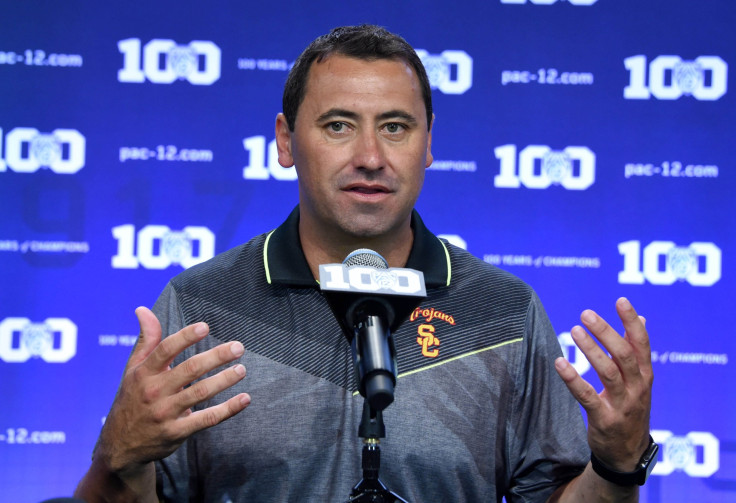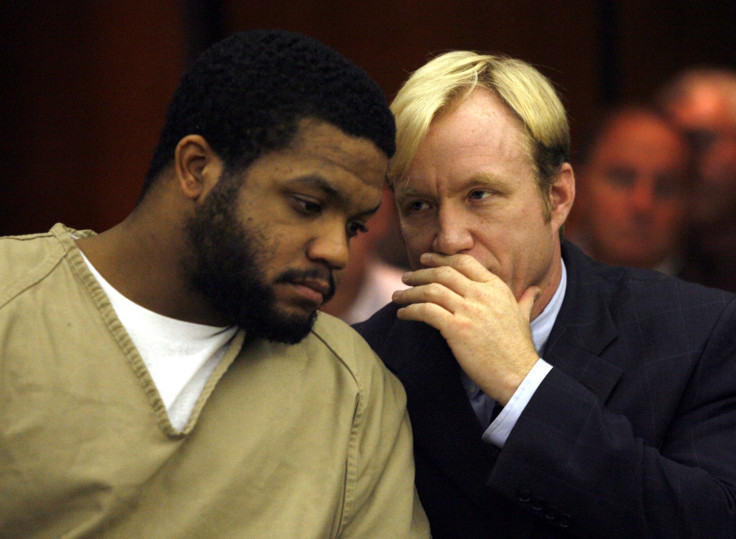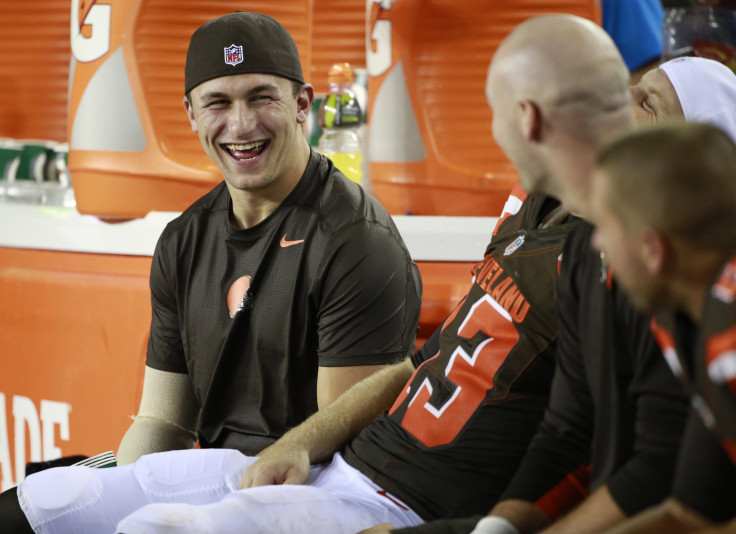Alcoholism In Sports: Amid Steve Sarkisian, CC Sabathia Drinking Problems, Addiction Stigma A Hurdle In Athletics

Nearly a decade ago, former Ohio State football phenom Maurice Clarett, behind the wheel with multiple guns in tow and knocking back Grey Goose vodka, made an illegal U-turn in Columbus, Ohio, and was pulled over by a police officer. A little more than a month later he pleaded guilty to aggravated robbery and carrying a concealed weapon -- crimes for which he'd have to spend three and a half years in prison.
It was a stark awakening for an athlete who once had all the promise imaginable. Alone in his cell, Clarett said he pivoted toward recovery.
"Twenty-four hours of the day, for the first seven months, was spent just sitting and thinking, sit-think, sit-think, sit-think, sit-think," Clarett told International Business Times in a phone interview. "You kind of see where you’re at. And that was my moment of clarity to tell myself, 'Man, something has to change.'"
For Clarett it was his trip to prison that finally forced him to confront his abuse of alcohol and pills. It took one of the most dramatic falls from grace in athletics: from freshman sensation and Heisman candidate to NFL flameout "to robbing everyone he knew," as he said to Yahoo two years ago. But Clarett's story of struggling with alcohol is hardly uncommon.
The sports world has recently been shaken by the very public battles with alcohol on display by former University of Southern California football coach Steve Sarkisian, Yankees pitcher C.C. Sabathia and Cleveland Browns quarterback Johnny Manziel. All three have either attended or are attending some form of rehabilitation for their alcohol consumption. But there is a unique stigma attached to substance abuse in athletics: The same mind-set that contributes to on-field success, the silent powering through pain, makes it seemingly harder to battle substance issues. For Clarett, it took a stint in prison to come to terms with his issues. But as high-profile cases of rehabilitation efforts have been embraced in the athletic community, there's a perceivable shift in how alcohol abuse is addressed by the sporting world.

'It Has To Do With This Invincibility'
Athletes, like the general population, have long struggled with alcohol abuse, if for perhaps different reasons. The characteristics of a typical athlete can be a factor, as are the particular stresses and rigors of intense competition.
"Personality characteristics such as competitiveness and sensation-seeking may [be] salient factors that contribute to alcohol use by athletes," Britton Brewer, a sports psychologist at Springfield College in Massachusetts, said in an email.
There's the added uncertainty of earning playing time, or losing a step, or the weight of thousands of dollars hanging on your every performance. Athletes, who routinely perform feats many of us can only imagine to the cheers of raucous crowds, can also feel untouchable.
"It has to do with this invincibility," said Dr. Louis E. Baxter, executive medical director of the Professional Assistance Program of New Jersey. Baxter has consulted with the NFL and NBA on substance-use disorders and developed a program for addiction recovery that has treated more than 50 professional athletes. "I hate to say this, but a lot of professional athletes suffer from the same misconceptions that teenagers do. What I'm referring to is this invincibility: Yes, it happened to the other guy, but it won't happen to me."
In recent memory there have been a number of high-profile instances of alcohol abuse in sports. Sarkisian has had his reported struggles with alcohol play out in public fashion and was removed from his position leading USC's football team as he reportedly entered rehab Monday. Sabathia decided to sit out the New York Yankees' MLB playoff push last week in order to get treatment. Manziel received treatment earlier this year after widespread rumblings of a hard-drinking, partying lifestyle. Former NBA star Lamar Odom, who has struggled with alcohol and substance abuse, was reportedly clinging to life as of Thursday in a hospital after being found unconscious at a Nevada brothel Tuesday. Preliminary toxicology reports showed he had multiple drugs in his system.

Everyone deals with stress, and alcohol is a common place for people to turn, athletes and non-athletes alike. Former sports stars ranging from the NBA's Vin Baker to MLB legend Mickey Mantle had reported drinking problems.
"I would say that it’s a trend ... it's something that has been going on for quite some time," said Dr. Joshua Watson, a professor at Texas A&M University-Corpus Christi, who has written on athletes and alcohol abuse.
The Stigma
Baxter said about 10 percent of the population has issues with alcohol specifically and that athletes would be about on par with that average. But where athletes differ from the public at large is an added shame placed on addiction issues. The issues become harder to overcome because they are not addressed.
"There is still a stigma attached to it," Baxter said, adding athletes are hesitant to admit any physical limitation or weakness in the grips of a disease. They're used to simply pushing through problems.
"In the athlete culture there is this belief: If you work hard enough, you can overcome any adversity you’ve had," Watson said. "The stigma [is] if I'm seeking treatment, 'How is that going to look, how are my coaches going to look at it … Am I going to lose playing time?'"
Over time, ignoring an issue can snowball into bigger problems, sometimes terrible consequences.
Clarett, who was a household name to scores of football fans in the early 2000s, rushed for 1,237 yards in his one season as a running back at Ohio State and led the Buckeyes to an undefeated championship season. He was an electric player who created jaw-dropping highlights. But amid an improper benefits scandal, he was gone from Ohio State after just one year and then failed in a lawsuit to enter the NFL early before he reached the minimum age requirement. He was released by the Denver Broncos about one month after signing an NFL contract in 2005. The problems mounted.
"It was a series of things, you know," he said. "Something comes up, you try to step out to the side without dealing with it. When I got kicked out of school, that was a stressful thing, but me wanting to be the big-time athlete, [I thought] ‘Okay this is not a big deal' ... Then you go from there to you don’t have this identity of the superstar football player ... Then you’re dealing with 'Hey, I’m a failure of some sort' and you’re dealing with that reality."
Clarett said these events helped tilt him toward his eventual substance abuse. Each small thing went by unaddressed, and when enough inertia built up, it all spiraled. He didn't know he could talk about it. He didn't know of a place to turn.
A Lessening Stigma
Years after his arrest and imprisonment, Clarett talks excitedly, plowing through sentences like collegiate linebackers, mentioning drawing up vision boards and acknowledging his former problems. He talks about attacking his issues head-on, his language still peppered with sports talk: You've got to "dig a little" deeper when it's hard, he says. These days he's imparting those hard-earned lessons to young athletes, traveling to speak to a number of college football teams.
Nearly a decade after Clarett's public fall from grace, strides have been made toward helping athletes deal with alcohol issues. His own transformation into something of a motivational speaker (he won't call himself that) hints at that fact. The stigma is lessening. Imagine a starting pitcher like Sabathia skipping the postseason to get help a decade ago, and that move being met largely with support.
Baxter said high-profile athletes like Sabathia and Manziel getting help for alcohol issues diminishes the stigma Clarett felt so intensely -- that such troubles were to be silently powered through.
"I think that it's very helpful," Baxter said. "I think that there has been more attention given to the fact that it is a disease rather than willful misconduct ... Previously you'd get a warning, then [upon a second problem] you’re just a bad apple."
© Copyright IBTimes 2025. All rights reserved.






















